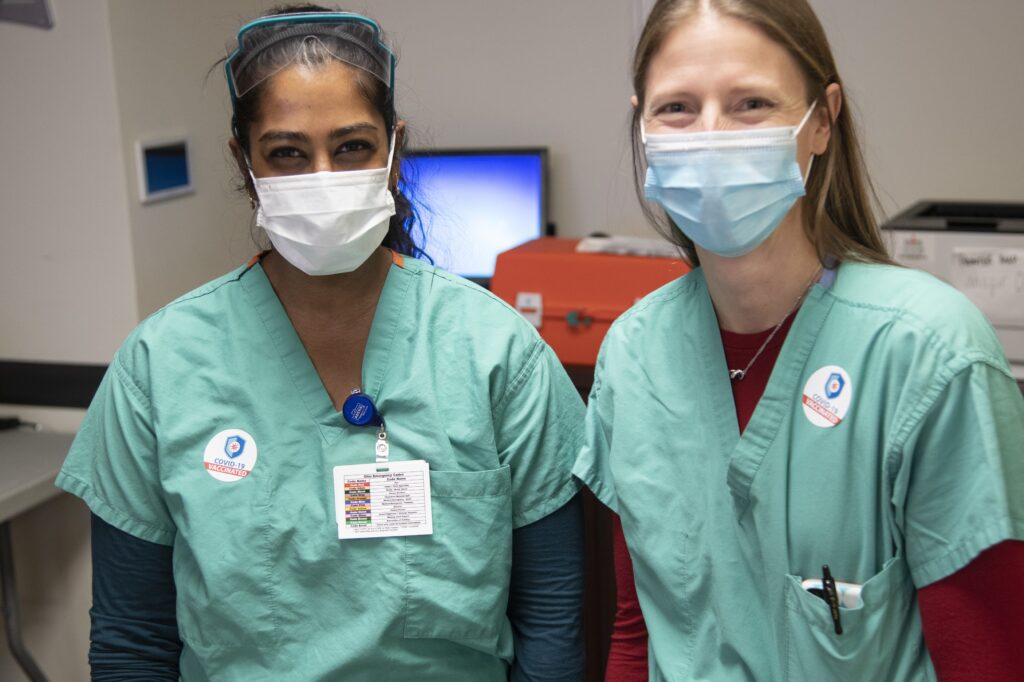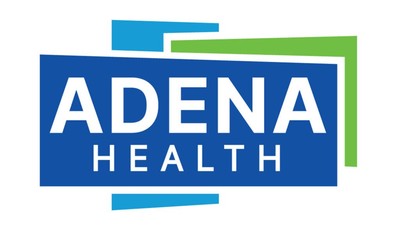
Adena Allergists Address COVID-19 Vaccine Questions
Presented by Hometown-Motors, Inc.

CHILLICOTHE, OH (Jan. 14, 2021) – For months, the approval of vaccines to stop the spread of the Coronavirus has been seen as a critical next step in the eventual return to normalcy. As approval of two vaccines thus far – produced by Pfizer and Moderna – has become reality and administration of initial doses has begun, it continues to be met with questions and uncertainty among some as they consider whether to take the vaccinations once they become generally available.
Whether their hesitance has been brought on by the uncharacteristic speed at which the vaccine was developed and approved, worries about potential side effects, misinformation circulating on social media or simply a desire to wait and see how others handle the vaccinations before agreeing to take the two-shot dosage, it has become apparent that clear communication regarding the vaccine is a must.
Adena board-certified allergists and immunologists Dr. Rekha Raveendran and Dr. Dana Esham – both having already taken the first dose of the Moderna vaccine and heartily encouraging others to do so when it becomes available to them — have been doing extensive research on the various COVID-19 vaccines. Recently, they took some time to address many of the questions surrounding the Moderna vaccine.
SPEED OF VACCINE DEVELOPMENT
While vaccines traditionally are years in the making, there have been several factors that have contributed to the shorter time frame with this virus, including the fact that earlier last year, scientists received the genetic makeup of COVID-19, which made vaccine development easier. This circumstance, coupled with the fact that mRNA vaccines have been in development over the past decade in response to other viral diseases, have also helped speed the process along, as did the amount of funding made available to push COVID-19 vaccine development and manufacturing forward.
HOW THE VACCINE WORKS
One of the common concerns Dr. Esham hears from patients is that it will have a negative impact on their genetic makeup, which is not the case. The vaccine utilizes a small piece of mRNA that is picked up by the cells in the body to create the spike protein contained on the outside of the COVID-19 virus. The body’s immune system then recognizes the spike protein as an intrusion and destroys the cell while creating antibodies against that protein. Those antibodies will then attack the virus immediately if exposed to it in real life before illness can set in.
Addressing another related concern the two physicians have heard, a person cannot contract COVID-19 through the vaccine because there is no active virus within the vaccine.
“When you get the vaccine, you are getting mRNA that encodes for just a piece of the virus (the spike protein),” Dr. Raveendran said. “By getting this information, your body can make very specific antibodies to the spike protein which can neutralize the virus and protect you should you come in contact with it.”
VACCINE EFFECTIVENESS
In clinical trials, Moderna’s vaccine was shown to be 94.5% effective in preventing COVID-19 infection seven weeks after trial participants received the second dose, with just five people out of 13,934 who received the actual vaccine contracting COVID-19 versus 90 out of the 13,883 participants who were given a placebo. In the trials, the vaccine was 100% effective in the 65-and-older demographic and 93.4% effective in the 18-to-64 demographic, as well as 100% effective against severe infections. The trials also revealed that it can be administered to immunocompromised patients, but its effectiveness may be diminished for them, as well as for any patients who take the first dose but fail to receive the second.
Dr. Esham said those who receive the first dose are, at best, 50 percent protected – making that second dose essential to reach that 94.5% effectiveness. Additionally, it may take 10 to 14 days after the first shot to reach even that 50 percent protection as the body reacts to the vaccine.
She added that even after taking the second dose, people still need to take public safety precautions such as mask wearing and social distancing until enough people take the vaccine to build up more of a herd immunity.
SIDE EFFECTS
While there have been no significant side effects or allergic reactions reported out of the Moderna trials, Dr. Esham and Dr. Raveendran have fielded questions about the few reported serious allergic reactions being investigated from the Pfizer vaccine – the ingredient polyethylene glycol (PEG) is being looked at as the most likely trigger for those reactions but further investigation is still being done into the cause of those reactions. Both vaccines contain the ingredient, but the allergists noted serious allergies to it are fairly rare and that PEG can be found in many everyday products including laxatives, lubricants, toothpaste, lotions and other items. As such, they indicated those who have PEG allergies may already be aware that they have a reaction to PEG and should consult with an allergist when considering whether to take the vaccine.
The most common side effects, however, are those similar to flu shots – some pain at the injection site following the first dose and headache, fatigue, chills and some aching joints reported by some trial participants from the second dose. Those side effects typically last anywhere from two to three days and are more common following the second dose.
VACCINATIONS WITH OTHER ALLERGIES, CONDITIONS
Dr. Esham shares the story of a patient with asthma and medication allergies who didn’t think she could take the vaccine. The fact she had those conditions – particularly for a virus with breathing difficulties as a major symptom – was exactly why she should take the vaccine, Dr. Esham said.
In fact, the doctors noted, those with common food, medication, insect or seasonal allergies are no more at risk of an allergic reaction to the vaccine than those without those conditions. Those with a known history of severe allergic reactions to PEG, however, will likely be advised to avoid the vaccine.
THE UNKNOWNS
While there’s no long-term data available as yet regarding the length of the vaccine’s protection, there is 90-day data from about three dozen people showing the titers showing protection are still there. As time passes, more data continues to be collected.
“The initial data did show that the vaccinated patients have better antibody response,” Dr. Esham said. “I think that’s an important distinction for people to know.”
While getting infections naturally can lead to immunity, this is not always the case. There have been reports of patients getting COVID-19 more than once, as well as patients not having evidence of neutralizing antibodies even after severe COVID-19 infections.
With vaccines, the goal is targeted immune response to a part of an infectious agent, in this case the spike protein. By being able to target a specific response to a specific part of the virus, the vaccine can provide a better and more specific antibody response in the majority of recipients.
The most recent unknown comes in the form of reports of a mutated strain of COVID-19 originally coming out of the United Kingdom and now being found in some states. Both doctors said it is too early to tell what impact that may have on the effectiveness of the vaccine, but that it shouldn’t be a factor in deciding whether to take the vaccine.
“I still think if it’s between getting the vaccine and not getting the vaccine, I would certainly get the vaccine,” Dr. Esham said. “If a new strain becomes an issue and they have to change the vaccine just like they do with the flu vaccine, then we do that.”
Dr. Raveendran added that, on occasion, the flu vaccine doesn’t always match up exactly with the predominant strain of the virus, but that it still provides enough protection to lessen the effects on those who contract the flu. The hope, she said, is that would be the same situation with any mutated strains of COVID-19.
Moderna recently released a statement expressing confidence its vaccine will be effective against variant strains of the virus, saying the company will continue with testing against those strains.
THE RECOMMENDATION: TAKE THE VACCINE
Both Dr. Esham and Dr. Raveendran enthusiastically encourage taking the vaccine, asking those making up their minds to consider the tragic deaths, long-term health issues, social distancing, economic impact and daily struggles we all continue to experience. They also stress that those who do take it cannot let their guard down in the near future and must continue practicing socially responsible behavior regarding the virus.
“I want people to be excited, because I think this is the first step to getting our lives back, but we need to take a cautious step because we’re not going to be back to normal life by June,” Dr. Esham said, noting the speed with which other companies get approval for their vaccines and increase the available supply across the country could impact timelines.
Both doctors say they welcome patients to reach out to them with any questions about the vaccine that may make their decision about taking it a bit easier.
For more about Adena Health System, visit us at adena.org, or follow us on Facebook, Instagram, or Twitter @adenamedical.


























